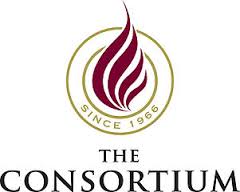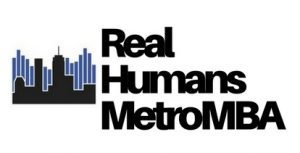March Madness Begins: Consortium MBA Draft Takes Place Today

Clear Admit recently highlighted this year’s Consortium for Graduate Study in Management MBA Draft, which is offering huge scholarship payouts for a lucky few. Check it out below.
No, it has nothing to do with basketball. A draft of another sort will take place today, but for some MBA applicants it could be as big as getting by the Golden State Warriors. We’re talking about the annual draft for the Consortium for Graduate Study in Management. Each year, the group’s member business schools offer tens of millions of dollars in fellowships to hundreds of MBA applicants, most under-represented minorities.
Held annually in mid-March, the draft is a complex matching up of leading business schools and applicants based on the order of preference expressed by each. Consortium member schools include the University of Michigan’s Ross School, UVA’s Darden School, UC Berkeley’s Haas School, Dartmouth’s Tuck School, and NYU Stern, to name just a few. When applicants apply as part of the Consortium Fellowship process, they benefit from being able to apply to six of the 19 members schools using a single application (with volume discounts for multiple schools). But then comes the tough—and critical—part.
The Importance of Ranking Your Consortium Schools Carefully
You have to rank your selected schools in order of your desire to attend, which will determine the order in which you’ll be considered for the Consortium Fellowship, a merit-based, full-tuition award. (There is the pesky little detail about needing to gain admission to a school or schools on your list.) Provided you are admitted to some or all of the schools on your list, your ranking then comes into play. If your first-ranked school declines to award you funding through the Consortium, the opportunity will be passed on to the next school on your list, and so on. According to a Consortium employee, the order in which applicants have ranked their choices is not revealed explicitly to the schools. Instead, each school is just not given an opportunity to offer you the fellowship until theirs is the top remaining school on your list.
Of course, another important part of the Consortium application is demonstrating a proven commitment to increasing the ranks of African Americans, Hispanic Americans, and Native Americans in business education and corporate leadership. The Consortium was founded in 1966 by Washington University professor Sterling Schoen around the mission of equipping more African American men with the requisite business skills to succeed in corporate America. Three schools and 21 men took part in the first year. Additional schools began to join as members, and in 1970 applicant membership was widened to women, Hispanic Americans, and Native Americans. In 2004, in compliance with a Supreme Court ruling a year earlier, membership was opened to all U.S. citizens and permanent residents who demonstrate a track record of supporting the Consortium vision.
Today’s Consortium MBA Draft Day
Fast forward to today, draft day. Representatives from the member schools are gathering with Consortium staff to begin the complicated matchmaking process, which at least in recent years has taken place in a St. Louis hotel room near the Consortium’s Chesterfield, MO, headquarters. Unless things have changed dramatically with recent additions to the number of member schools—the group has grown from 17 in 2011 to 19 this past July—the process includes six rounds and takes about four hours to complete.
Schools come in with their draft picks in hand, and the school designated as first choice by the most applicants gets to choose as many of those students as it wants to offer the fellowship. And so it continues, passing on to each successive school to select from its first-round applicants. If a school passes on an applicant at any time in the process, another school can then select that applicant in a later round.
From the applicant’s point of view, here’s what it looks like: Let’s say that Yale SOM is your first-ranked school and you are admitted into its MBA program. In today’s draft, Yale SOM will have first dibs on offering you the Consortium Fellowship. If Yale SOM does offer you the fellowship, everyone’s happy and you can choose to attend with the benefit of the fellowship. You may still be admitted to other programs on your list, but these programs cannot offer you the Consortium Fellowship.

But say you were admitted to Yale SOM but it doesn’t offer you the fellowship—or you don’t get into Yale—then the opportunity to offer you the fellowship is made available to your second-ranked school, and on down the line.
While only one school can offer you the Consortium Fellowship, that does not preclude the other schools on your list from offering you other school-specific scholarship funding. Once awarded by one school, the Consortium Fellowship is not transferable to another.
Regardless of whether you ultimately accept the fellowship and attend the school that offers it, you retain your Consortium membership status, granted as part of the application process. As long as you attend a school within the Consortium, you’ll get take advantage of a wide range of membership benefits, including valuable recruitment and networking events, webinars, and chats.
Why Would Anyone Turn Down a Consortium Fellowship?
Consortium member schools will typically select more students than they have fellowships for to account for the fact that some fellowship recipients will ultimately turn down their offers. What would make a fellowship applicant turn down a free ride to a top-ranked business school, you ask? Sometimes it’s admission to an even higher-ranked business school not part of the Consortium (Harvard, Stanford, Wharton, Columbia, Kellogg, MIT Sloan, and Chicago Booth don’t play the Consortium game). This becomes an easier decision if these other schools offer their own attractive financial aid enticements, which they often do. So in the coming Decision Week(s), keep in mind that schools that have picked you now get to anxiously await word of whether you pick them. It’s nice when the tables get turned, right?
The official Consortium Fellowship notification deadline is March 23rd, but we’d guess many schools will be eager to share the news of the fellowship award in tandem with the news of acceptance. It should be fun to watch on MBA LiveWire! Those of us here at Clear Admit are wishing luck to the applicants and schools involved in today’s Consortium MBA Draft and hope some terrific matches are made, resulting in hundreds of successful MBA careers and further expansion of the Consortium mission’s reach.
To those on MBA Livewire who have speculated about why some Consortium applicants learned of decisions from certain schools before stated decision deadlines, that’s also related to today’s draft. Consortium member schools will have needed to make admissions decisions for their potential drafts picks by today, regardless of the school’s own decision deadline. Some schools may choose to communicate those decisions to applicants early since they already will have been reached.
Learn more about the Consortium application process here. Applications for the Class of 2021 open in August 2018 are due in two rounds, the first in October 2018, and the second in January 2019.
Here Are The 7 Hardest MBA Admissions Interview Questions

Clear Admit recently explored seven of the hardest MBA interview questions you may encounter, with helpful tips on how to handle them.
We recently shared our list of the most commonly asked MBA admissions interview questions, along with extensive advice on how to approach such queries. In light of the popularity of that piece, we’ve decided to up the ante this time around and spend some time deconstructing the absolute worst, totally unfair, just all-around-tough MBA admissions interview questions.
How did we do this, you ask? We called on three members of our team—all of whom have significant admissions experience at top schools—to comb through our extensive Clear Admit MBA interview archive and hand pick a set of particularly challenging questions. The only ground rule was that they needed to be questions posed to applicants with some degree of regularity, as opposed to one-off, oddball questions from an ‘off the reservation’ alum.
Arriving readily enough at a set of incredibly tough questions, our team of former admissions officers then crafted extensive guidelines on how to approach each one.
WARNING: Some questions on the list appear very sweet and innocent. Be aware that looks can be deceiving.
If you’re preparing for an upcoming interview, you won’t want to miss this valuable insider advice. It can help make answering even the most challenging questions feel like a walk in the park.
The Seven Hardest MBA Admissions Interview Questions
1. Describe a failure in which you were involved.
Why It’s Tough
Most candidates, when preparing for an interview, focus on the positive aspects of their story. They cannot wait to share their successes and highlight their strengths. So when asked directly to describe a failure, they can be unnerved at best and completely thrown at worst, especially if they haven’t given such a question any thought.
Key Considerations
The type of failure, the time frame of the failure and what you learned as a result will all be relevant in terms of addressing the question.
Risks:
- Picking a failure that is really just a veiled success story, i.e. not a real failure. “We missed one deadline (failure) but we shipped an outstanding product (success).” This type of answer can be perceived as avoiding the question.
- Picking a failure that is so substantial, and recent, that the interviewer genuinely worries that you might make the very same type of mistake again—either due to incompetence or because you just simply haven’t had time to learn from it yet.
Planning Your Response
Make sure you prepare to address a real failure that you played a part in and acknowledge your direct role. While the failure should be substantial, it should not be catastrophic to an organization. Address the process you went through in terms of deconstructing the failure and how you have learned from the experience. Finally, discuss a more recent success that demonstrates your use of the lessons learned from the earlier failure.
2. What other schools are you applying to?
Why It’s Tough
Many professionals in the admissions community feel that this question is simply unfair. There are several reasons for this, one of which is that applicants don’t really know how the answer is going to be used (more on this below). In addition, it’s not as though candidates are allowed to ask their interviewer about the other applicants the committee is considering…
Key Considerations
Fair or unfair, let’s unpack the purpose of the question a bit: Is it to determine your likelihood of attending the program you are interviewing for? Is it to assess whether you are ambitious in terms of school selection or more conservative? Is it simply to see if your list of target schools makes sense and demonstrates a thoughtful approach on your part? Any or all of these options are possible depending on the school interviewing you.
In most instances where this question is used, it is being asked by schools that are concerned about their yield. They want to avoid admitting candidates that clearly will select another school when given the choice. That being said, there are admissions interviewers who ask this question merely to better understand your approach to selecting target schools—and to determine whether you are simply applying to schools ranked in the top 10 or have a more nuanced approach. Regardless, you should prepare a solid answer.
Planning Your Response
There are three parts to addressing the question. First, you do want to be honest even if the question feels unfair. Second, as you list your schools, explain why you chose them. You want to demonstrate that your selections are thoughtful ones resulting from thorough research and careful consideration of your career plan, preferred teaching methods, campus environment, etc. Finally, should make the case for why the school you are interviewing with is a very excellent choice among the group of schools you’ve listed—citing specific elements of the program that fit well with the criteria that drove your overall school selection.
3. Describe a conflict at work and your role in it.
Why It’s Tough
It can be hard to discuss conflict without taking sides or painting some of your colleagues (or yourself) in a negative light. It can also be dangerous to highlight a conflict and appear detached from it—e.g. downplaying your role—because that could suggest either that you did nothing to stop it or that you simply aren’t important enough at work to have played a role/taken a side. In short, this kind of question is loaded with “damned if you do, damned if you don’t” issues.
Key Considerations
A common question in an MBA interview will look at how you handle conflict, and usually conflict at work. Schools ask this question to test your emotional intelligence and to see how you talk about your peers, your bosses, your organization, etc. Even the slightest whiff of “throwing someone under the bus” can backfire. It’s also important to showcase your ability to see the various sides of a conflict.
Preparing Your Response
It makes sense to prepare a particular conflict you have had at work and be ready to use the example. A strong response to this question needs to show your role in the conflict, who it was with, how it was addressed (if, in fact, it was addressed) and what the result was. Equally as important will be to share what you learned from the experience and how a subsequent situation at work was resolved positively or avoided altogether as a result of what you learned.
Berkeley Haas Celebrates 8 Years of Defining Leadership Principles

If you want to get a feel for the culture of UC Berkeley’s Haas School of Business, look no further than its four Defining Leadership Principles (DLPs): Question the Status Quo, Confidence Without Attitude, Students Always, and Beyond Yourself.
Introduced eight years ago, the DLPs have become a part of the fabric of the school. In fact, 75 percent of students from all three MBA programs and the undergraduate program cite them as a major reason they chose to attend. Not only that, 90 percent of Haas alumni surveyed from the past decade report being familiar with them and using them to navigate both their professional and personal lives. Earlier this month, as part of Haas Culture Day, the school celebrated the DLPs’ eighth birthday, complete with cupcakes.
In an interview with the Haas Newsroom, Dean Rich Lyons talked about the impact the principles he helped introduce have had on the school. “I’d say that we are seeing stronger data every year that the DLPs are affecting what we really care about. For example, we have clear data on how the Defining Leadership Principles are helping us win yield battles (i.e., when students choose Haas over other schools they’ve been admitted to). The DLPs are also motivating our donors. Alumni awareness of the principles is way up, and their engagement based on them is way up.”
To build on these successes, the school has launched a new initiative, the Haas Culture and Leadership Fund, designed to further extend the reach and impact of the DLPs even after Lyons steps down as dean to return to the faculty at the end of this academic year. Among other things, money from the fund will enhance culture-focused content in the curriculum; financial aid, awards, and research support for students and faculty who exemplify the DLPs; and support existing centers and institutes that uphold the principles.
Dean Lyons has a difficult time choosing which DLP most resonates with him. “It has always been hard for me to look at them as anything but a ‘system’ taken all together,” he said. “The one principle that still seems like it sets us apart the most externally versus our top competition is Confidence Without Attitude. But for me personally, the one resonating the most right now is Beyond Yourself. There’s so much in that one that it’s inexhaustible.”
Haas also reached out to its community to find out which DLP they preferred. See what they had to say in the video shared below.
This article has been edited and republished with permissions from our sister site, Clear Admit.
Real Humans of the NYU Stern MBA Class of 2019

Clear Admit recently profiled many of the standout students from the NYU Stern MBA Class of 2019, which you can read below.
New York University’s Stern School of Business got the party started this summer as the first leading business school to share a profile for its incoming Class of 2019. That profile, published in late July, revealed a 4 percent uptick in application volume over the prior year. At the same time, the school admitted significantly fewer students—822 this year as compared to 871 last year—which means that those who got in did so against greater odds.

This increased selectivity may have contributed to the rising GMAT scores among those who got the nod. Both average and median GMAT scores increased year over year. The average GMAT score jumped six points, from 710 to 714. The median score increased even more significantly, from 710 to 720. Average GPA, though, slipped slightly, from 3.51 to 3.48.
As the school’s admissions process grew more selective, the enrolled class grew more diverse. The incoming class is 38 percent female, up from 35 percent the prior year. International students also increased to represent 37 percent of the Class of 2019, up from 35 percent in the Class of 2018.
In terms of the work experience they bring with them, more members of the Class of 2019 come from the financial services industry (29 percent) than any other. Another 12 percent of the class came from consulting. Students with government/non-profit, tech, and military backgrounds followed, at 7 percent each.
While some of these statistics hint at both the diversity and the high caliber of the incoming class, nothing brings that to life more than a look at some of the real students who enrolled. We spoke with five of them—drawn from Massachusetts, Texas, Michigan, India, and Lebanon respectively—to learn more about why they chose Stern, how they hope the Stern MBA will help them transform their careers, what advice they would offer to applicants navigating the admissions process right now, and more.
Perhaps not surprising, NYU Stern’s New York City location factored highly into the decision-making process for many of the students we asked. But so too did its community—including how approachable and friendly current students were to prospective students and the school-wide emphasis on IQ + EQ (emotional quotient)—and its curriculum, which has a strong core but also gives students the opportunity to explore electives early on and offers specializations in things like luxury marketing and technology. The reach of its alumni base was also a factor cited by several of the students we spoke with.
Read on to learn more about some standout members of the NYU Stern MBA Class of 2019.
How to Ace These 5 MBA Interview Questions

Clear Admit recently explored 5 crucial interview questions you’ll need to know during the height of MBA interview season, based off the site’s in-depth interview guides and archives, which you can read below.
Interviews, interviews, interviews … it’s all anyone seems to be talking about these days, and with good reason. Harvard Business School, Michigan’s Ross School, Chicago Booth, NYU Stern, and UVA Darden are just some of the schools that have already or are in the process of sending out Round 2 interview invitations. Stanford GSB, MIT Sloan, and UPenn / Wharton are among those soon to come.
Instead of driving yourself crazy with worry, why not buckle down and perfect your answers to the questions you are most likely to be asked? To help you prepare, we’ve scoured our Interview Guides and Interview Archive to compile our very own list of five MBA interview questions you need to ace. These questions are among those that most often make their way into MBA admissions interviews at leading schools.
While the questions listed here are most commonly asked as part of blind interviews, they can certainly also come up in the course of non-blind interviews. In those cases, you’ll want to be prepared to go deeper into some of the specific experiences you shared in your application. (Check out our quick refresher on the difference between blind and non-blind interviews).
For detailed insights into each school’s interview process, the questions they ask, and how to tackle those questions, access Clear Admit’s Interview Guides.
5 MBA Admissions Interview Questions You Need to Ace
Walk me through your résumé.
The real trick with answering this open-ended question is to gauge how much detail is too much. Imposing a structure can help. “It’s best to err on the side of brevity,” says Alex Brown, who asked this very question of many hopeful Wharton applicants during his time working in admissions at the Philadelphia school. “Think of this résumé walk-through as simply laying the groundwork for deeper discussion of your background and accomplishments.” A good idea is to develop a two- to three-minute run-through, beginning with where you grew up and went to college, what you studied and perhaps something you enjoy outside of work. Then move into a concise overview of your work experience, beginning with your first job and continuing to present day, making sure to explain why you made the choices you did and what you learned in each major role. “This kind of high-level overview gives your interviewer the perfect opportunity to ask for more detail about specific points if she wants it,” Brown says. If you have a gap of three or more months due to unemployment or some other cause, you should be prepared to address it, Brown warns, although in a short résumé question as part of the interview, it may not come up.
What are your career goals?
With any luck, you will already have a well-honed response to this question, developed and refined as part of the process of writing your application essays. “If you are looking to shift industry or function, this is your chance to explain your reasoning and that you have carefully thought through what may be involved in successfully making the transition,” Brown says. Keep in mind why the adcom is asking this question, Brown suggests. “They want to know how focused you are on the MBA and whether you are in a position to take advantage of the resources business school offers or at risk of getting overwhelmed,” he says. Present a very clear post-MBA goal, Brown recommends. “Schools prefer to admit students who can explain exactly what kind of job they want to pursue beyond graduation and articulate how it will set them up to obtain their long-term career objectives,” he says. Schools are also looking, with this question, to see if your goals make sense and are feasible in light of your past experiences; are you able to articulate a clear path and plan?
Why X school?
Here, schools want to see if you have really done your research on their program and whether you are a good fit with their culture. So, do your research. “I recommend a three-pronged approach to make a truly compelling case for your interest in a given school,” Brown says. Start with academics, he says, naming specific courses and professors that you are interested in. “Remember, your interviewer wants to see that you have really researched the school.” Second, mention specific clubs, conferences and other special programs that will help position you for your career goals. “Even better, show how you would contribute to the school community, such as by organizing an event to share specific knowledge you bring with your future classmates,” Brown suggests. Third, show that you have a good understanding of the school’s community, culture, class size and location and have thought about how these fit with your personality, goals and background. “If you have visited campus or talked with current students or alumni—definitely say so, lead with this.” Brown stresses. “Beyond showing that you’ve invested time in getting to know the school, this also helps your interviewer have a mental picture of you on campus.” he says.
Give us an example of a time you took a leadership role.
The way interviewers ask this question can vary—sometimes you’ll be asked directly about your most notable leadership experience and other times you’ll be invited to describe your general leadership style. “It’s important to keep a few basic principles about leadership in mind,” Brown says. “A leader is someone who has a strong vision or point of view and is able to see things others are not,” he continues. A leader must also have excellent communication skills. Choose an example that demonstrates these points. An ideal leadership example will describe a time when you negotiated with and persuaded key stakeholders, such as clients or a supervisor, to buy into your vision and then delegated the work and managed colleagues or juniors. “If you encountered obstacles along the way, share how you dealt with them,” Brown says. “If possible, you should also show success through quantified results,” he adds. As important as a successful outcome is demonstrating how you drew on the help of others where necessary. “No one is successful on their own,” Brown says. Show that you understand that strong leadership means teamwork and playing well with others, he says.
Tell us about a time you failed.
As tempting as it may be to say that you’ve never failed at anything…that is not what that adcom is looking for here. “In fact, this is a favorite question for those who appear to be ‘rock stars’ on paper,” Brown says. But rock stars make mistakes, and having an example in your back pocket of a time things did not go according to plan can show humility as well as your capacity to learn and grow. “The best answer to this type of question ends with a more recent experience where you took the lesson you learned from the failure and put it into play, affecting a better outcome.” he says.
These five questions certainly don’t cover everything your interviewer is likely to ask you, but they do touch upon some of the things you’re most likely to be called upon to share as part of your MBA admissions interview. You can take some of the anxiety out of the interview process by giving each one some thought, drawing on some relevant experiences from your past, and practicing the responses you would give. Don’t practice too much so that you appear overly rehearsed—since it’s important to seem both authentic and genuine—but prepare enough so that you’ll be ready to truly put your best self forward.
Georgetown McDonough Entrepreneurs Win Big in Inaugural Pitch Contest

Last month, Georgetown University’s McDonough School of Business held its inaugural Leonsis Family Entrepreneurship Prize “Bark Tank” Pitch Competition, named in honor of the school’s mascot, the bulldog. Put together by a team of expert entrepreneurs at the Georgetown Entrepreneurship Initiative, the goal of the competition was to support students and alumni in their startup ventures. Overall, nearly a dozen teams and individuals competed for $100,000 in prize money.
In alignment with Georgetown’s Jesuit values, the pitch competition highlighted business ventures that focused on problems in the world around them. Ultimately, the prize money was intended to bring awareness to innovative technology and business ideas that address a social issue by doing good.
“It is wonderful to watch the community rally around ‘StartupNation,’” Ted Leonsis—the founder, majority owner, chairman, and CEO of Monumental Sports & Entertainment—said in a press release from the university. “It has been tremendous to watch these entrepreneurs exhibit passion to tackle these issues. Entrepreneurship allows Georgetown University to stand atop of what they are already doing, which is to develop the whole person. We have the opportunity to become an institution where people not only get an education but also have a higher calling.”
The ultimate winner of the “Bark Tank” pitch competition was Hatch, a startup launching soon in Washington DC, that seeks to provide co-working and child care solutions for working parents. Founded by J.P. Coakley (MBA ’18) and Kelsey Lents (MBA ’18), Hatch won $30,000 at the competition, which will enable it to open its first location.
The Leonsis Prize underscores the student experience at Georgetown University in how the student, faculty, and alumni communities continuously help each other through scholarship, mentorship, and networking,” said Lents. “This support has impressed and motivated us to launch our business. We are excited to have won the Leonsis Family Entrepreneurship Prize, which will be instrumental in helping us to secure the lease and letter of credit required to open the first location of Hatch.”
Other prize recipients included ClassPulse, a professional development tool that allows professors to collect student feedback in real time. Founded by Claudia Recchi (B ’17), ClassPulse won $25,000. The third-place prize went to Cusp 365, an app that helps college women live a more healthy life. Founded by Jaclyn DiGregorio (B ’17), it received $15,000. Another five ventures, Campus Sherpa, Edible Finance, Foublie, Galapagos Strategy, and Qoral Health, each won $5,000 in prize money.
Overall, the winners were chosen based on scores by a panel of judges including CEOs, founders, and chairmen from leading companies in the area.
To learn more, visit the website or watch the video from the contest below.
